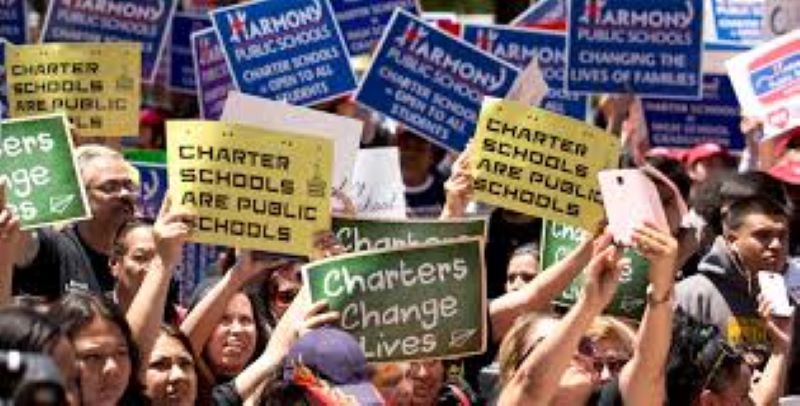
The teachers unions have discovered that charter schools are enemies of the good society.
Bernie Sanders is with them, warning us that these institutions are anti-democratic and must be brought to heel – that is, in reality, to the heel of the union, which insists that charter schools are essentially private and threatening to work evil among the poor in our cities.
And private they are in varying degrees depending to some extent upon the terms of their particular compact. The point of the original charter concept (1971) was to aid the liberation of the low-income parent and child from subordination to those unchosen strangers from government and union who control the self-styled “public” school located in their compulsory attendance zone.
Charter schools were to give the poor a taste of the personal and civic responsibility enjoyed by wealthier Americans who can and do freely cluster in chosen government schools in the suburbs or pay tuition in the private sector.
Like every traditional “private” school, the charter is held to basic legislated standards of curriculum and safety with one major exception. For better or worse, the most serious governmental imposition on the charter school has been the exclusion of religion.
Though the parental choice among charter schools is completely free, the schools themselves are unfree either to recognize or reject God. They must secure their students’ ears, eyes and thoughts from any suggestion of the divine, either positive or negative, with all the predictable effects of this upon the child’s mind.
In many states, this censorship is defended as a requirement of 19th century “Blaine Amendments” to the state constitution forbidding public aid to religion. The non-Blaine charter states have accepted this intellectual taboo as the norm and as the diktat of the union.
Given relevant precedent and the seeming attitudes of a majority of the justices of the U.S. Supreme Court, there seems no barrier under the federal constitution to the extension of the state’s authority to subsidize its parents’ choice of religious charter schools. The larger question will be whether the states are forbidden by our national law to actually exclude aid to the subsidized choice of such schools by parents. Next term, the Court will consider Espinoza vs. Montana Dept. of Revenue, presenting this very issue.
If we have vouchers, must they be for the choice of all legitimate schools? Here the school and parent may one day have reason to thank the teachers union for its clear insight that the charter school is indeed private.


